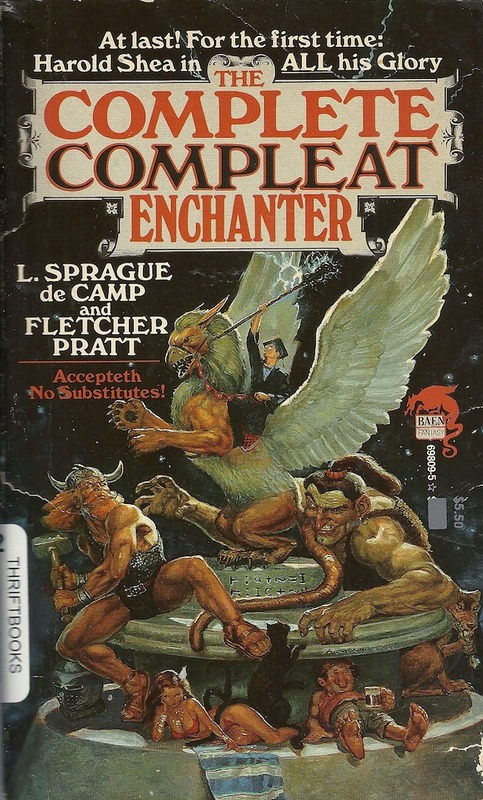Speaking of Bards you’d like to play… just take a move from Druid or Shaman or something and you’d round this out…
Speaking of Bards you’d like to play.
Speaking of Bards you’d like to play.
Google+ community from Dec 2012 to March 2019
Speaking of Bards you’d like to play.
Speaking of Bards you’d like to play… just take a move from Druid or Shaman or something and you’d round this out…
In your opinion, what PbtA game has the best large spaceship combat rules?
In your opinion, what PbtA game has the best large spaceship combat rules? Why? In particular, what game does the best job at making sure that every player has something to do during combat? I guess this question can also go beyond PbtA games.
What do you think about the idea of writing a “player profile” you can share with people you play with so they know…
What do you think about the idea of writing a “player profile” you can share with people you play with so they know what to expect, how to entertain and engage you and how to help with things you struggle with?
This is just a short example, but you get the idea:
I know that I struggle when I don’t have a strong motivation or good reasons for my character to engage with the story. I also dislike puzzles that I have to solve as a player, but I love open ended problemsolving and using the environment in creative ways. I am chaotic good and I like long walks on the beach.
I would pin a big flashy disclaimer on these because it is so easy to misunderstand or make assumptions from reading a simple statement, and some people don’t even know themselves that well. When I say “I dislike puzzles” I don’t mean “I hate mysteries, secrets and problemsolving of any kind”, I mean “I’ve had issues with puzzles, let’s talk about puzzles so we’re on the same page before they come up”.
– Do you know your own player profile or personality well?
– Do you often give people a heads up about how you play and what you like or dislike before playing?
– Do you think it is a good idea for people to start writing and sharing their profiles with people they play with?
– Are there any things in particular you would like to learn about people before playing with or running a game for them?
Ultimate Bard as pointed out by Isa Wills
Ultimate Bard as pointed out by Isa Wills
The Final Girl vs.
The Final Girl vs. Dead Teenager RPG? Looks like Dead Teenager is on sale for 24 hours (with < 1 hour left now) for $3 on DTRPG. I've played The Final Girl once due to this community. Looking at the few preview pages of Dead Teenager, it also looks GMless, requires 3-6 players, and 2 decks of cards. There is a rotating director chair. Anyone have any thoughts or played this other slasher game?
http://www.drivethrurpg.com/product/125867/Dead-Teenager-RPG
I’d like to add a section of advice to GMs on resolving 7-9 results to the World of Dungeons space opera hack I’m…
I’d like to add a section of advice to GMs on resolving 7-9 results to the World of Dungeons space opera hack I’m working on. This is a rough draft, but this is one of the things I struggle with. Any thoughts?
Resolving 7-9 Results: “A total of 7-9 is a partial success; you do it, but there’s some cost, compromise, retribution, minor harm, etc.” One of the challenges you face as GM is to resolve the frequent 7-9 partial success results. As a general matter, you will find this to be much easier if you make the risk absolutely clear before the roll. On a 7-9, the PC succeeds in accomplishing her goal, but it isn’t perfect. Here are some possible ways to address this result:
1) Announce a soft move as the cost of the success and allow the PC to decide whether it is worth it: “You can avoid the weapons fire, but only if you drift dangerously close to that anomaly. Do you do it?”
2) Ask the PC to describe the unintended consequences: “You repair the shield system, but your console starts flashing red. That can’t be good. What just happened?”
3) The clearly identified risk comes to pass, but it isn’t as bad as expected. “The group of aliens don’t seem fully convinced. They stop firing, but their weapons are still at the ready.”
4) They get some of what they want, but not all of it: “You definitely get some life signs, but you have no way of knowing how many.”
I think you can add a lot of flavor to your game and setting when you spend a little time describing your magical…

I think you can add a lot of flavor to your game and setting when you spend a little time describing your magical spells. To this end I think it is interesting to consider some common laws and mechanics of magic described in fantasy (and some how-to) books. I have recently started re-listening to L. Sprague deCamp’s “The Compleat Enchanter” anthology where a modern psychologist transports himself to various fantasy settings where he observes and masters these rules in a professional manner. Other great books include “The Kingkiller Chronicle” books by Patrick James Rothfuss and anything in “the magic goes away” series by Larry Niven. It should be stated that I am not claiming these ideas as uniquely mine, complete, or the only way to do things. This is just a long rant and a bit of fluff to add to your game.
Let us start with the concept of connection which can be specified into (at least) two laws called Similarity and Contagion. Similarity means that two things that share similar traits can be treated as the same thing. This is most commonly referenced in the concept of a voodoo doll. I make a doll that looks like you and when I prick it, you suffer the same effect. Contagion means that after two things have been meaningfully connected, they are always connected. This is often referenced when witches (voodoo or otherwise) require a bit of hair or prize possession of the person they are cursing. These concepts describe how you target or transfer the effects of your spell. The more your ritual resembles the target, the more effectively it will apply to them. In fiction you should always look for items or substances that you might use to gain a hold on your target. Maybe you found some of the murderer’s blood at the scene of the crime. You might use it with a compass or pendant to track him across town or throw it into a fire to cause him to identify himself by yelling out.
The second concept is power which can be specified into two laws called Talent and Pacts. Talent sums up the natural magical ability or aptitude of spell casters and fantasy creatures. Most fantasy systems do not allow just anyone to cast magic. Often it involves a bloodline or an inherited position or item. The source of your talent may imply the appearance and behavior of your magic. Maybe fire spells are particularly effective for you because your ancestors interbred with a line of dragons. Pacts encompass any interaction where you get power from an outside source. These sources can be magical beings or even forces of nature. Furthermore these pacts could be made willingly, under duress or through sacrifice. The most common example of this is the traditional “Deal with the Devil”, where you give up your soul to gain some sort of reward or improvement. Often in fiction a powerful being will give you a means to call them for aid in return for some service you provided them. The genie in the lamp is another good example. You agree to release him in exchange for three wishes. Pacts are particularly interesting because they provide a means for people without natural talent access to powerful magical effects. In fiction you should pay attention to the names of powerful beings or gods and appeal to them for aid. Look for ways you can assist these entities and gain boons or subjugate them in order to extract promises. Don’t be afraid to offer something important to seal the deal. Work with the GM to flesh out the details but they should be overjoyed to see you engaging the setting this deeply.
The final concept I want to talk about is Lore which includes all knowledge that is not well understood by common people. This includes magical writings but also the true nature behind strange effects. Common people may have learned to keep out scraps of food next to an old pair of shoes in exchange for repairs. You know the secrets and language of the wee-folk and can call them for assistance. No one knows why the town is becoming sick but you can tell that a bog spirit has taken up residence in the public well. Possibly you know a few words in the language of fire and can call or tame it. Lore about the natural world may give a mundane character the appearance of magical abilities. A talented character may have knowledge of other worlds and call in even stranger creatures or effects.
Sorry that became way too long but hopefully it encourages some wizards to go a little beyond “I cast fireball.”
I heard Senda from She’s a Supergeek talk about using the It’s Not My Fault!
I heard Senda from She’s a Supergeek talk about using the It’s Not My Fault! character and situation generator cards to play micro sessions with people at a Con. What else would you use to run a demo session in less than five minutes? Or do you have suggestions for how to design a framework with this in mind?
My goal is to show outsiders or traditional gamers what playing rpgs can be like. Getting people to an actual table is a lot of work and if I can’t win people over in five minutes, it’s probably not worth it anyway.
Jason Cordova In one of the podcasts you mention how you like to use World of Dungeons to test out new modules…
Jason Cordova In one of the podcasts you mention how you like to use World of Dungeons to test out new modules before bringing them to the table. What does that actually look like? Do you do a solo-play session?
A few days ago I ran a session that just fell flat and I decided to end it prematurely.

A few days ago I ran a session that just fell flat and I decided to end it prematurely. We were all really tired and playing a new game for the first time, so even though I failed it, I didn’t feel that bad.
I can only remember one other session where this happened in the last two years, but I do remember several times when we should have at least taken a break to talk about why things didn’t work out and how to do better, but we suffered through instead.
Have you had any relevant experiences lately? A session that dragged on forever and everyone hated it, or maybe a time when you actually talked about it and saved yourselves from awkwardness and boredom?
I’m reminded again and again how being open about how you feel is so worth it, but I never seem to learn.
The solution is obviously better communication, but can you think of concrete advice or rituals that might help us avoid the Abilene paradox*?
*The group doing something few enjoy because no-one wants to rock the boat.